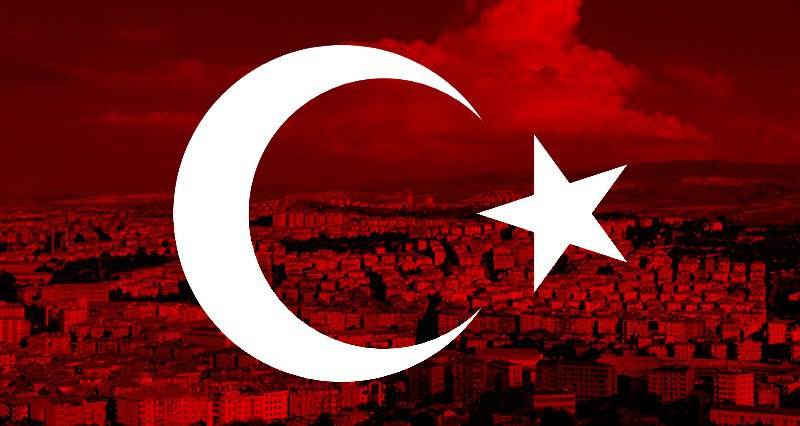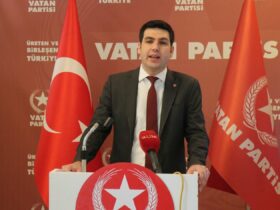Turkey spent last week talking about the natural gas reserves found in the Black Sea
This Friday, President Recep Tayyip Erdogan announced that the Fatih Drilling Vessel, which has been on natural gas exploration activities in the Black Sea, had discovered 320 billion cubic meters of natural gas reserves at the Sakarya Gas Field.
“GOOD NEWS”
Speaking at an opening in Ankara last Wednesday, Erdogan said, “On Friday, hopefully we will give our nation the good news. I also believe that a new era will begin with this good news to our entire nation.”
Minister of Treasury and Finance Berat Albayrak cited Erdogan’s statement, and said “This new thing will indeed be an important point that would change the axis and transform Turkey” he said.
Some intense debates took place among the media about the content of the good news.
Erdogan announced this “good news” on Friday with the following statement: “Turkey has found the largest natural gas discovery in its history in the Black Sea. The Fatih Drilling Vessel which has been drilling since July 20, 2020, has discovered 320 billion cubic meters of natural gas reserves, at the Tuna-1 gas field, (…) The Drilling Vessel, which we sent at the anniversary of the conquest of Istanbul to the Black Sea, has made us all proud with a success worthy of its name. In the area which we previously called ‘Tuna-1’ and now named ‘Sakarya Gas Field’, all necessary testing, analysis and engineering studies have been completed. The data we received from this field indicates that new natural gas discoveries in the same region are very likely. The reserve found in this first field is just a part of a much richer deposit. I hope other discoveries will come as soon as possible”
Erdogan continued his statement with the following statements: “We will continue with great dedication. As our Minister has just stated, we have worked with such countries that were giant corporations, companies from BP to Shell. They have made 100 to 150 exploration attempts and failed to find anything, and then they packed up. They did not take a dime from us, all the spending was theirs. This work is not easy, and these hardships are in the destiny of such work. We have now seriously reduced the costs of using our own ships in both seismic research and in drilling, and that is how we will work from now on. Of course, all we wish is to continue this work with dedication until 2023, and achieve positive results.”
Turkey’s focus on Africa: energy security, political influence and economic growth
WHAT WILL THE EFFECTS OF THIS DISCOVERY BE?
According to information shared by Anadolu Agency, this discovery was made about 170 kilometers off the coast of Turkey.
By the end of 2019, Turkey’s total natural gas production was 473,8 million cubic meters. The total amount of natural gas produced in Turkey was 16615 million cubic meters. Some of this production is carried out by Turkish Petroleum Corporation and some by other domestic and foreign private companies.
Turkey is purchasing its natural gas needs with pipelines from Russia, Azerbaijan, Iran, and with the import of liquefied natural gas (LNG) from the United States, Norway, Qatar, Algeria and other countries.
“Turkey’s natural gas expenses vary depending on the oil prices. In 2014, when oil prices were at $120 per barrel, the amount paid for natural gas imports increased to over $20 billion, then Turkey’s natural gas expenses ranged from $10-15 billion in 2015, when oil prices remained in the $30-60 range.”
The gas deposits discovered off the shore of the Black Sea, are considered to be large enough to meet 6-year natural gas consumption of Turkey.
A SECOND S-400 AGREEMENT IS SIGNED
Another event that marked this week was that Aleksandr Mikheev, president of the Russian arms company Rosoboronexport, announcing that Turkey had signed a second agreement to purchase S-400 missile defense systems.
The Future of Turkey-Russia Relations Post Shipments S-400 Missile System
Experts say that a second delivery of the S-400 system will be made in the near future. In April 2017, Turkey first made an agreement with Russia for the purchase of the S-400 air defense systems.
While Moscow has delivered the first party of S-400s to Turkey, the US and NATO have repeatedly threatened Turkey with sanctions about this purchase.
The first shipment of S-400s are still not activated.
















Leave a Reply